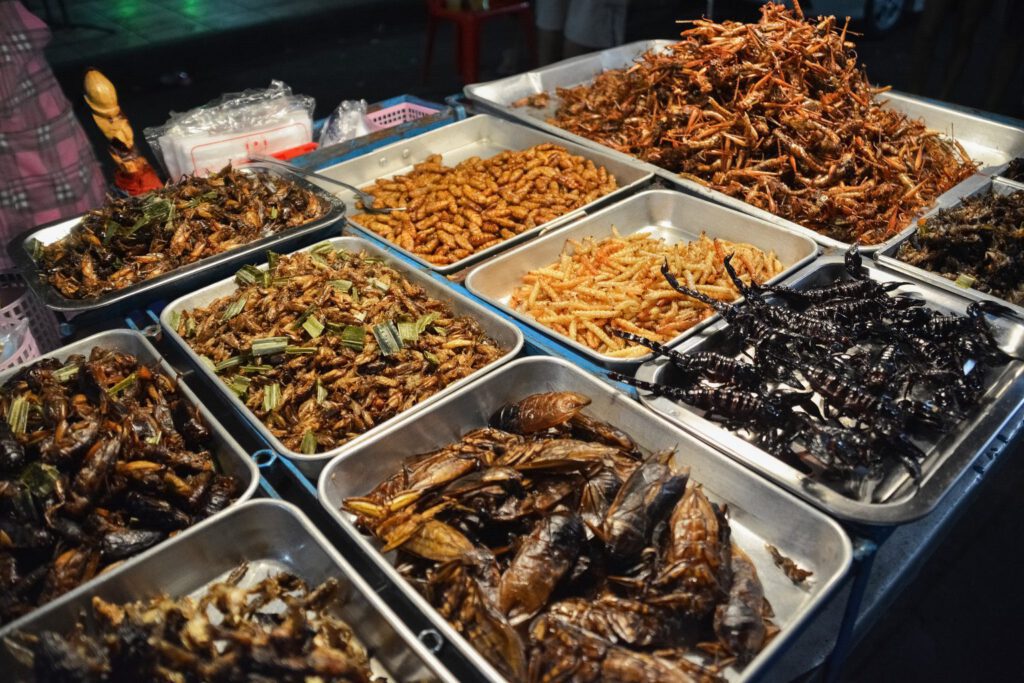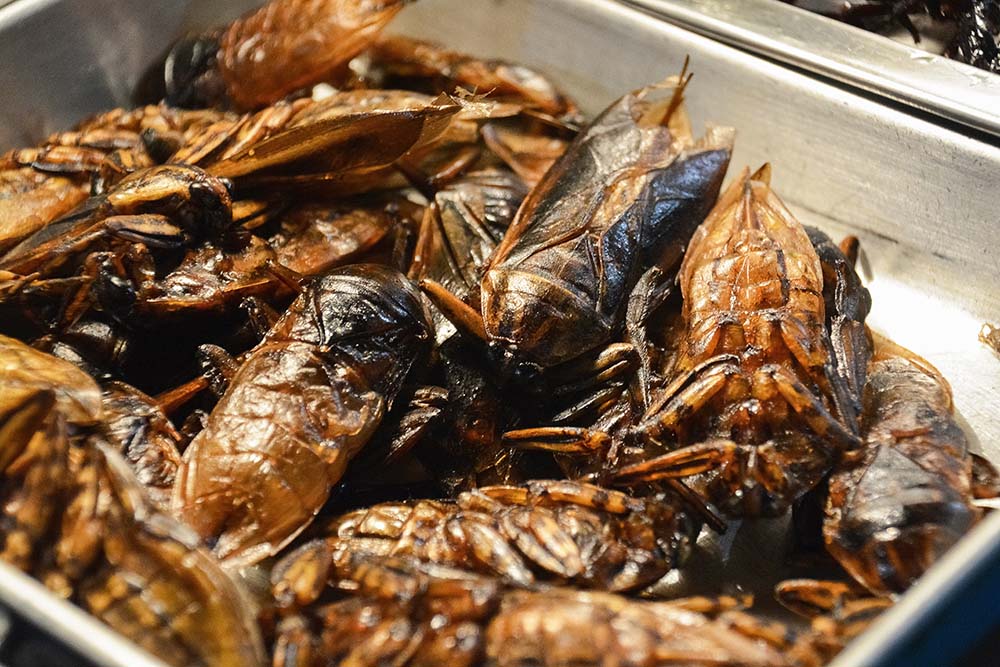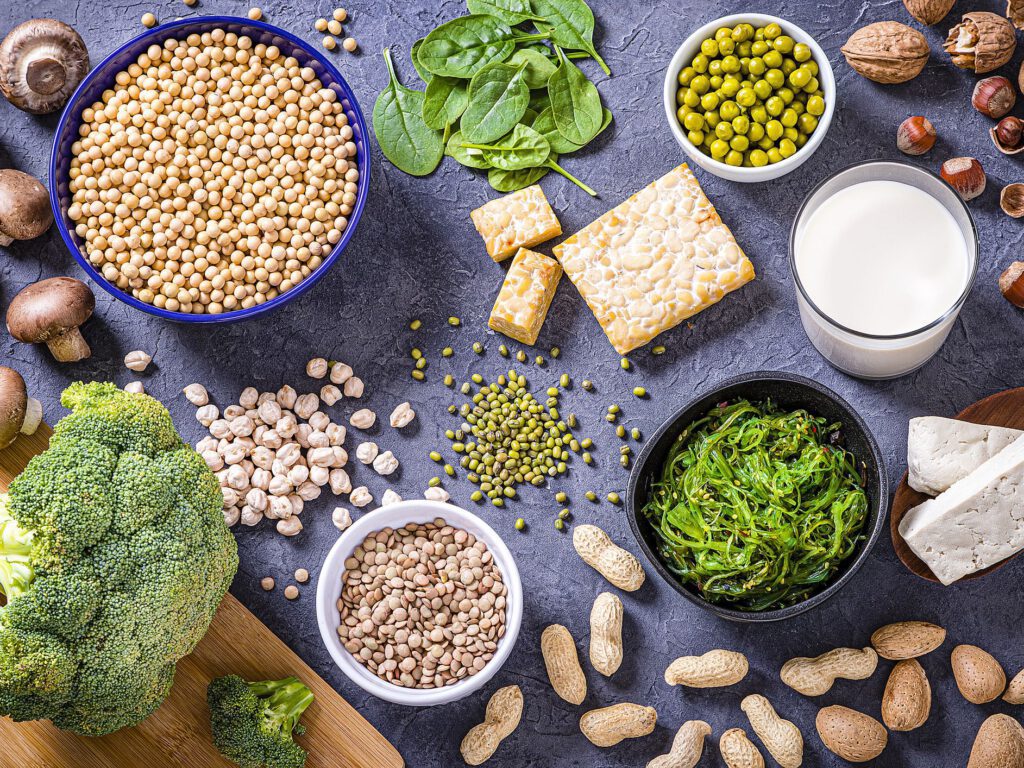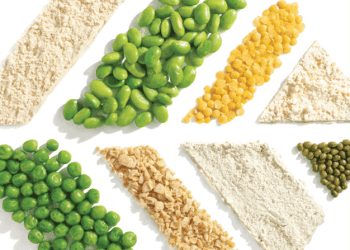Scientists argue resource pressures on the planet could be reduced by more than 80% with novel foods, compared with the environmental impact of a typical European diet.

Scientists claim artificial meat manufactured in a laboratory, or crushed insect meal might lead to big savings in CO2 emissions and water use as well as freeing up agricultural land to be reserved for nature.
The conclusion is the result of a new study from Finland that calculated the environmental advantages of the “greener” food that could be on its way to your dinner plate, the BBC reported.
Scientists argue resource pressures on the planet could be reduced by more than 80% with novel foods, compared with the environmental impact of a typical European diet.
It has not yet been determined if consumers will embrace the idea of artificial meat and insects to shift their eating habits.
A raft of new foods is being engineered with the aim of providing food sources that are protein-rich and nutrient-dense, while being easier on the planet, since the novel food varieties will use less water and land, the study said.
Scientists in Finland examined the nutritional profile of some of the novel food products and looked at three measures of environmental pressure: the use of water, land, and the potential CO2 emissions.
Scientists said alternative diets, such as vegetarian, vegan or flexitarian, had demonstrated multiple benefits, both environmental and health.

“With significant reductions in animal-sourced foods and substitutions with novel or future foods and plant-based protein alternatives, you can have significant reductions in environmental impacts in terms of global warming potential, land use, and water use,” said Rachel Mazac, lead author of the study.
EU researchers previously said worms, eaten whole or in powder form, are protein-rich, while the UN Food and Agriculture Organization said that edible insects “contain high-quality protein, vitamins, and amino acids for humans.”
In Western countries, insects aren’t traditionally regarded as food, and consumers’ willingness to eat foods of insect origin is weak. However, the likelihood of accepting insects as food tends to increase with consumers’ considerations of the environmental impact of food production.
A 2019 study looked at the prevailing attitude to artificial meat and insect meal as food for humans.
Researchers at the University of Eastern Finland and the University of Helsinki researched consumers’ intentions to eat foods of insect origin among vegans, non-vegan vegetarians, and omnivores. They examined the attitudes and phobias toward the consumption of foods of insect origin, as well as the conditions for eating insect-based foods among these dietary groups. Altogether 567 people participated in the study by filling out an online survey.
Vegans held the most rigid negative attitude toward consuming foods of insect origin.
Non-vegan vegetarians expressed the most interest toward eating insects. By contrast, vegans considered insect consumption irresponsible and morally wrong.

“This is something we expected. We expected there to be differences between these three groups, and we expected vegans to have the most negative attitude towards eating insects. Vegans see insects as living beings, just like any other animals. It was also highlighted in the vegans’ survey responses that eating insects in the West doesn’t solve the world’s shortage of food, especially when edible food goes to waste all the time,” Professor Anna-Liisa Elorinne from the University of Eastern Finland said.
Food legislation around the consumption of insects for humans is still lacking industry standards. In particular, insects are not included in the United Nation’s Codex Alimentarius, an international guideline for food safety and control.
In Canada, crickets are not considered a novel food, and today the largest breeder of crickets, mealworms, and superworms in North America is located in Canada.
Additions to the Codex Alimentarius are decided by member nations of the Food and Agriculture Organization of the United Nations at their quadrennial meetings.

The Finland study published in the journal Nature Food looked at new foods predicted to become more common in our diets in the next years, most of which depend on high-tech approaches to grow plants and animals’ cells in bioreactors.
Dr. Asaf Tzachor of the University of Cambridge, who was not a part of the study, said that while the findings are promising, consumers’ hesitation to change their diets may delay, or perhaps even hinder, this much-needed transformation.









Your blog post was like a warm hug on a cold day. Thank you for spreading positivity and kindness through your words.